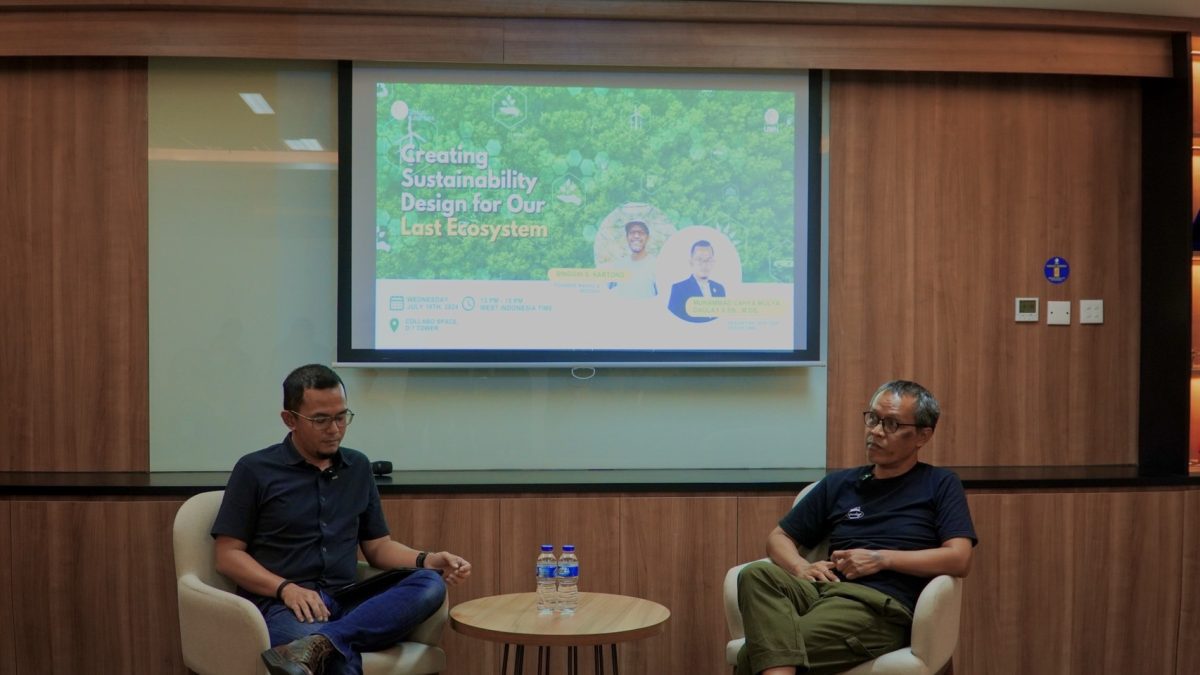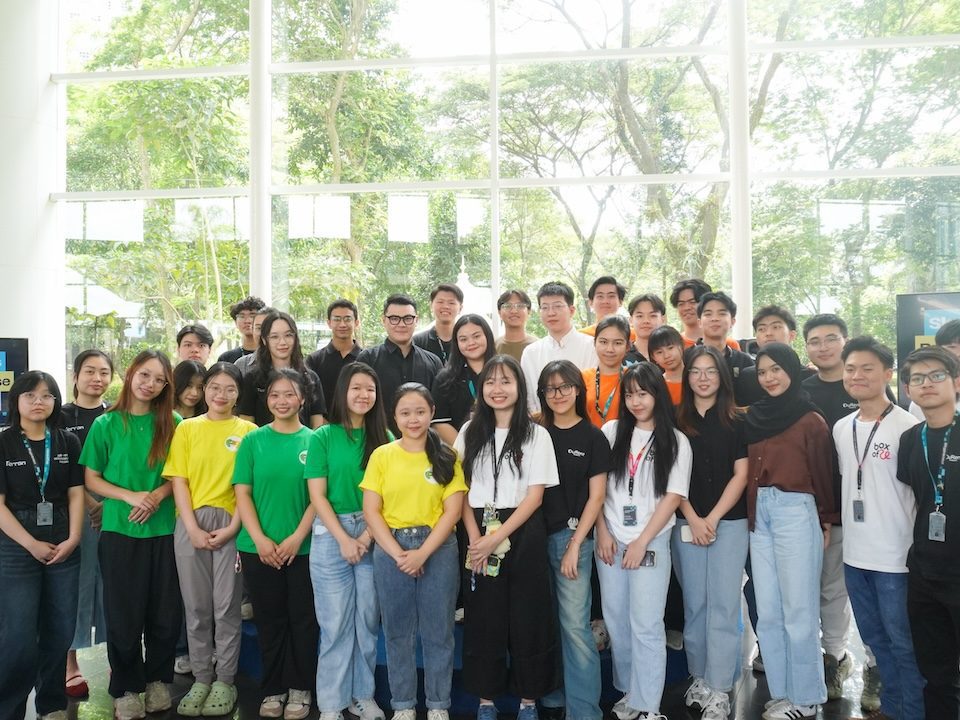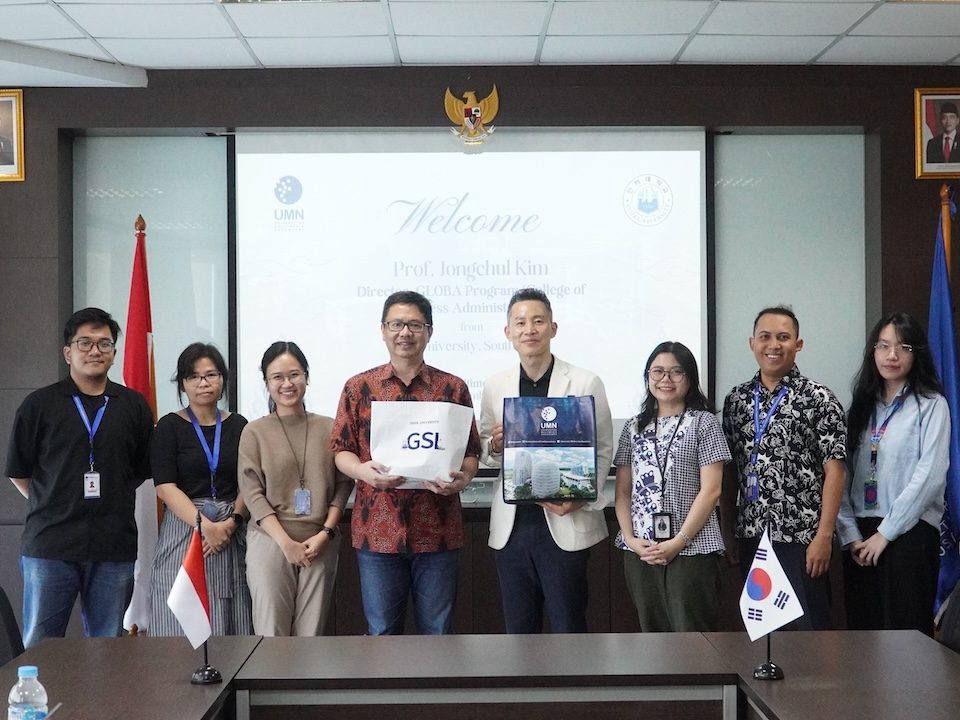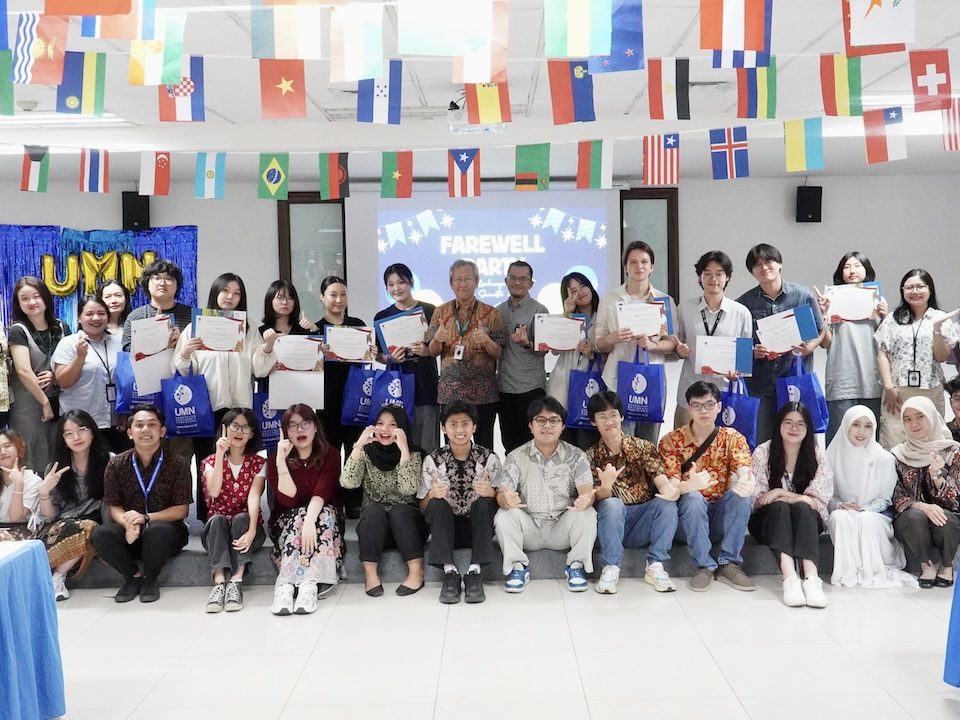
Too Good to Miss! The Benefits of Taking a Master’s Degree at UMN
July 11, 2024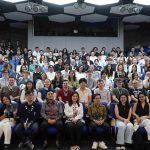
UMN Hosts The Australasian Intervarsity Debate Championships 2024
July 15, 2024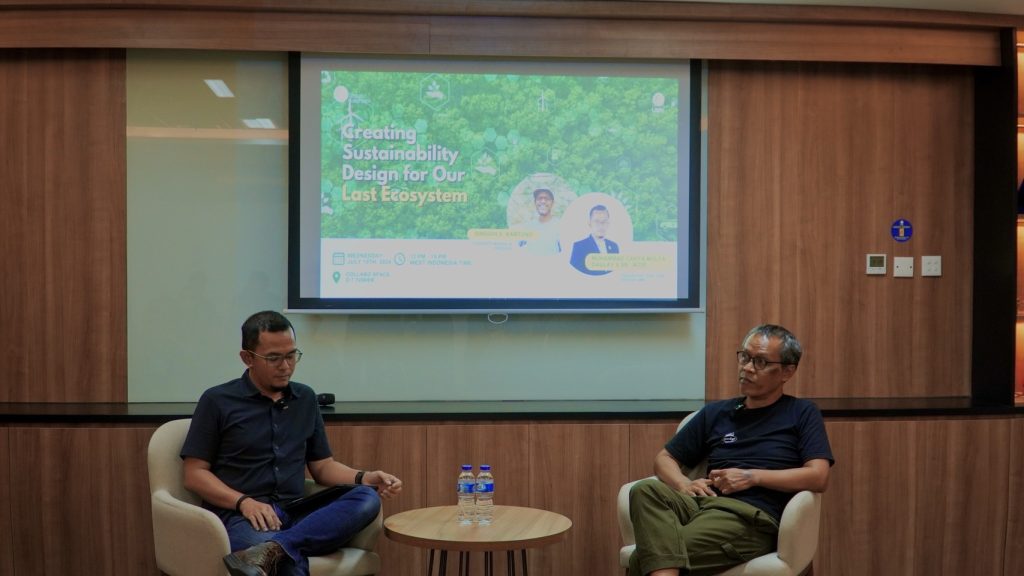
Material presentation by Singgih. (Doc. UMN)
Tangerang – On Wednesday (10/07), the Faculty of Communication continued the Lestari Nusantara series. Singgih Susilo Kartono and lecturers from the Faculty of Communication Sciences attended this talk show and discussion, emphasizing sustainable design and production.
This talk show is part of a series of Lestari Nusantara activities. Previously, Lestari Nusantara’s activities included a book review and discussed the Perspective of Biodiversity. Lestari Nusantara’s activities in July are based on Creative and Sustainable Design.
Singgih Susilo Kartono, the founder of Magno and Spedagi, delivered the material. Spedagi is a bamboo bicycle design. Many people have recognized Singgih’s work. In addition to bamboo bikes, he made other designs, such as wooden radios in 2004.
This talk show was hosted by Muhammad Cahya Mulya Daulay, S.Sn., M.Ds., the Head of the Film Study Program and the moderator of this talk show.
This talk show discusses sustainability broadly but also looks at sustainability from the design side. According to Singgih, sustainability today can be very important because people are becoming more aware of the environment and understand things that harm the environment.
“We live on Earth, and what we do (the impact of our activities) will be solved by nature itself, so all things complex will lead to that. The more complex the technology, the lower the success rate for reducing damage. The more complex life is, the more things get bad,” Singgih said.
Sustainability itself can be seen from many sides, one of which is design. Singgih talked about his experience and how the general public only knows design as a product design. Singgih also experimented and saw that design is everywhere and exists in all civilizations. Design is a plan, be it laws, literary works, or products– this talk show is also a design.
Singgih sees that design today is industrial design, a design for the wider community. We are also currently in an industrial experiment.
“If we really want to know about sustainable design, we must first know the basics. This needs to be understood because we live where there are too many new things and frequent changes, so we don’t know where we are and where we want to go,” Singgih said.
In the sustainable design discussion session, Cahya also asked whether sustainability design is related to products only or whether there are human and cultural aspects.
“Yes. Sustainable design is related to the culture, and because it is related to the culture, sustainable design is very simple. If we want to be sustainable, we may not be ready for the consequences, as we must reduce and realize that the world is over,” Singgih said.
“Don’t forget to reuse and recycle. If you don’t reuse, there will be too many things to recycle. Nature has provided and taught a very sophisticated but simple way of recycling. Like how a discarded banana will be naturally recycled by nature,” Singgih continued.
One of the essential concepts in sustainability design discussed in this talk show is Magnafest.
“This concept explains that if we produce something, we must know where it will end up. Critical thinking is needed. We must see what can be developed, also the cycle of collaboration and natural experiments where we should fulfill the needs of nature,” Singgih said.
“This goes back to ourselves– whether or not we dare to say ‘that’s enough’ to ourselves. We must have the principle of ‘enough’ in ourselves and learn it like it’s a science. If something is too sophisticated, don’t abuse it because now there are so many things that are upcycled like fashion,” he continued.
Singgih also advised humans to remember balance and limits. We can collaborate to identify problems and be responsible for solving them. This is because we currently live in a highly consumptive and high-production world that is difficult to control. He also advised us not to be arrogant individuals.
“We take care of nature, nature takes care of us,” Singgih said.
By Rachel Tiffany Tanukusuma | UMN News Service
English translation by Levina Chrestella Theodora
Kuliah di Jakarta untuk jurusan program studi Informatika | Sistem Informasi | Teknik Komputer | Teknik Elektro | Teknik Fisika | Akuntansi | Manajemen| Komunikasi Strategis | Jurnalistik | Desain Komunikasi Visual | Film dan Animasi | Arsitektur | D3 Perhotelan , di Universitas Multimedia Nusantara. www.umn.ac.id

